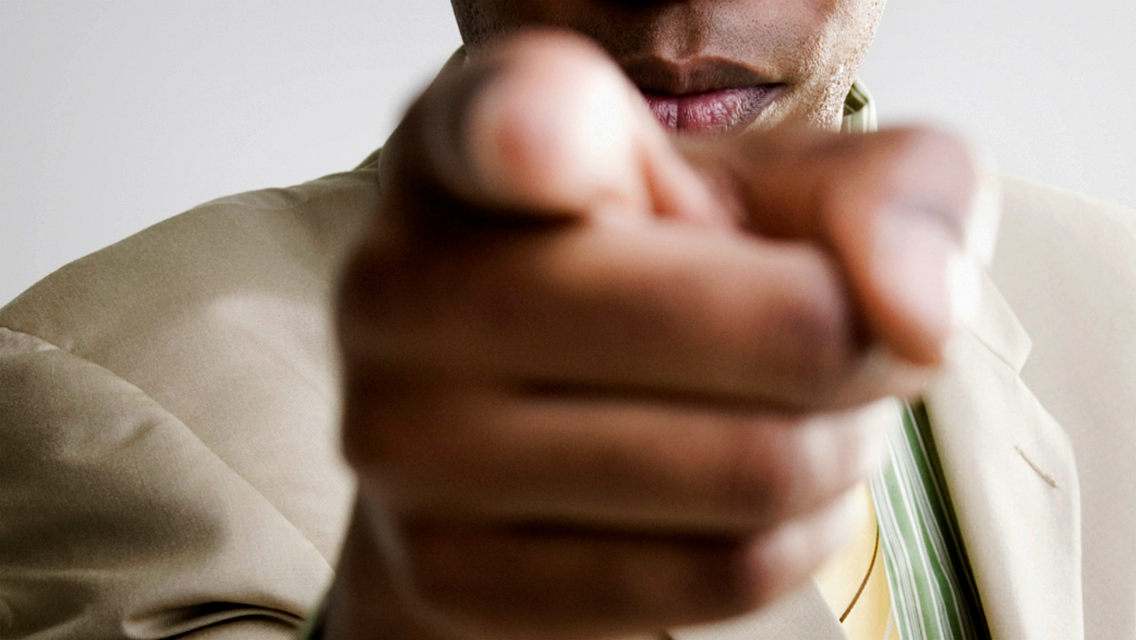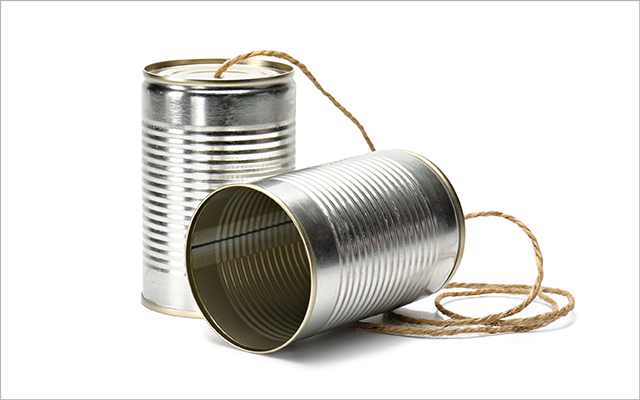It’s been one of those days. You awoke to a sink full of someone else’s crusty dishes. Your assistant forgot to send a document, and an important deadline was jeopardized. On your way home, you missed your exit because another driver refused to let you change lanes. It’s enough to make a person wonder: What the heck is wrong with these people, anyway?
If that’s a question you find yourself pondering, consider this: While blaming is a fairly common and instinctive human reaction to adverse circumstances, it’s not a particularly productive one. Even when it seems obvious that others are screwing up, a pattern of focusing excessively on other people’s faults, mistakes and shortcomings not only fails to produce much in the way of positive results, it can seriously damage our relationships, drain our creative energy and undermine our health.
So how do we escape the blame drain?
According to executive coach Marilee Adams, PhD, author of Change Your Questions, Change Your Life, we can start by letting go of our assumption that we already have all the answers. Instead of presuming that we know exactly what happened, why, and who’s at fault and what they should have done differently, instead we can begin asking some open-minded — and open-ended — questions.
Most experts who study blame agree with Adams’s philosophy: Questioning our certainty that what’s happened is just plain wrong — and that we know what’s right — is key to shifting out of blame and into discovery. The challenge lies in having the wherewithal and equanimity to trade blame’s short-term, habitual comforts for the more lasting relief and rewards of a more curious mind.
Not My Fault
We’ve all done it — impugned a coworker for a failed project, blamed a friend for letting us down or punished ourselves for not achieving a desired result — only to become mired in what seemed to be an interminable cycle of judgment-induced negativity.
The problem with settling into a determination that something or someone is “wrong” is that we create a situation in which we’re cut off from any new information or insight. We’re stuck stewing in our own frustration, repeatedly telling ourselves a story that can have no happy ending. This feeling of being trapped in our own unhappiness breeds even more resentment, which kicks the blaming cycle into even higher gear, largely blinding us to seeing or feeling things any other way. The result: As a rule, everybody — the blamer and the blame-ee — suffers.
So why do we so easily fall into this self-defeating pattern?
Some experts believe we succumb to blame because our brains are hardwired for consistency. In Mistakes Were Made (But Not By Me): Why We Justify Foolish Beliefs, Bad Decisions, and Hurtful Acts, social psychologists Carol Tavris, PhD, and Elliot Aronson, PhD, use “dissonance theory” — the notion that our brains are uncomfortable with information that challenges our belief systems — to explain self-righteous behavior. This mental friction is labeled “cognitive dissonance.” To restore harmony, brains create stories that make new information agree with previous beliefs, often at logic’s (and satisfaction’s) expense.
If you think of your spouse as lazy and yourself as a neatnik, for instance, you’ll keep blaming him for the messy kitchen even if you also leave some dishes after dinner now and then. It’s simply more comfortable than challenging our beliefs about ourselves.
Another classic blame-supporting dynamic is projection, a type of psychological spin game in which we foist fault on others rather than confronting qualities we dislike in ourselves (see “How to Stop Projecting” for more). This is why we’re much more likely to be bothered by a spouse’s lackluster housekeeping skills during a period we’re not feeling 100 percent wonderful about our own contributions to the household — or to the relationship. We externalize self-judgments and insecurities as a way of restoring our own sense of mental and emotional order.
In part because it operates automatically and under cover so much of the time, blame has a way of getting the better of us — sometimes bursting out of us before we even realize it has arrived. But if, in that briefest of moments between feeling and action, we can pause for a deep breath and question what’s going on, we can interrupt the neurological mechanisms building toward a self-righteous outburst. This, in time, gives us a chance to choose our response — and to embrace an unanticipated opportunity to grow.
The Right Questions
Psychologists, neurologists and therapists all agree that the well-asked question is the best tool for freeing ourselves from blame. Tavris and Aronson emphasize the importance of being open to the possibility of error and letting go of the need to be right. Neurologist Robert Burton, MD, author of On Being Certain: Believing You Are Right Even When You’re Not, suggests that the feeling of certainty can effectively become an addiction, one best treated by consciously practicing humility and the presumption of not knowing — a state often referred to as “beginner’s mind” (for more on that, see “Beginner’s Mind”).
For Adams, the most helpful approach to shifting out of blame is to become curious about perceived faults and conflicted situations. She uses a “choice map” to help steer her clients away from dead-end judgments and down a “learner path” that helps them discover the potential in a stuck situation. (Download the choice map at www.changeyourquestions.com, and learn more about the learner path in “Lines of Inquiry”.)
If we’re on the judger path, we ask questions like “What’s wrong with this person?” or “Who is to blame?” that lead directly to a sense of powerlessness. We can jump to the learner path by switching to questions that are more open to possibility: “What just happened?” “If I were giving this person the benefit of the doubt, how would I act?” “How can we both get what we want?” And, perhaps most important: “What are my choices, now?” By considering the ways that we can influence a problem, learner questions shift us out of blame and into a more empowered sense of responsibility and generosity.
“The key is to become aware of where you are nonjudgmentally,” says Adams. If you check in with yourself and find you’re in blaming mode, begin by simply acknowledging that. Then, take a deep breath, and instead of reflexively grabbing at the answers that reinforce your current assumptions and frustrations, reach for some better questions — the kind that lead to insight, evolution and understanding. Soon, you’ll have changed the rules of the blame game for good and, perhaps for the first time, you’ll be playing to win.
Break It Up
When you catch yourself slipping into blaming mode, here are a few road-tested strategies to help get you back on track:
Separate Person From Deed
Social psychologists Carol Tavris and Elliot Aronson suggest that when judgmental thoughts arise, you retrain your focus, directing it firmly toward resolving the problem at hand — whether it’s the unclean litter box or an uncomfortable pattern in your relationship — and away from finding fault with the person (or persons) involved. This depersonalizes the problem and circumvents the need for defensiveness.
Step Off the Triangle
Many family therapists use some version of Stephen Karpman’s “drama triangle” to break up patterns of blame. If a conflict keeps escalating, according to this model, we’re likely caught in one of three roles:
- victim
- villain or
- hero
Victims feel helpless; heroes only feel good when rescuing the helpless; and villains consider themselves innately bad, and thus helpless to change. (Notably, they all blame somebody.) You can free yourself from any role by shifting into a non-defensive stance. Instead of responding to a provocative remark with, “It’s your fault!” or “It’s not my fault,” try answering: “You could be right. I’ll think about that.” Assuming responsibility stops drama cycles in their tracks. (Read more about the Karpman drama triangle at “How to Avoid Drama”.)
No Fault Policy
The fastest route to recovering your personal power is to accept full accountability for your role in co-creating any difficulty, say Gay and Kathlyn Hendricks, coauthors of Conscious Loving: The Journey to Co-Commitment. If you refuse to lay blame, it forces you to seek other, nonjudging explanations for your frustration. By necessity, when you let go of asserting “whose fault it is,” you’re forced to develop a more helpful habit of self-reflection. This even applies to cases where the person you’re blaming is you: Rather than assuming there’s something inherently flawed or unredeemably wrong with you, ask questions: “What are my real responsibilities here, and what are my choices? How did I arrive in this situation and what do I want to take away from it now? What can I learn here?”
This article originally appeared as “The Blame Game” in the November 2008 issue of Experience Life.




This Post Has 0 Comments